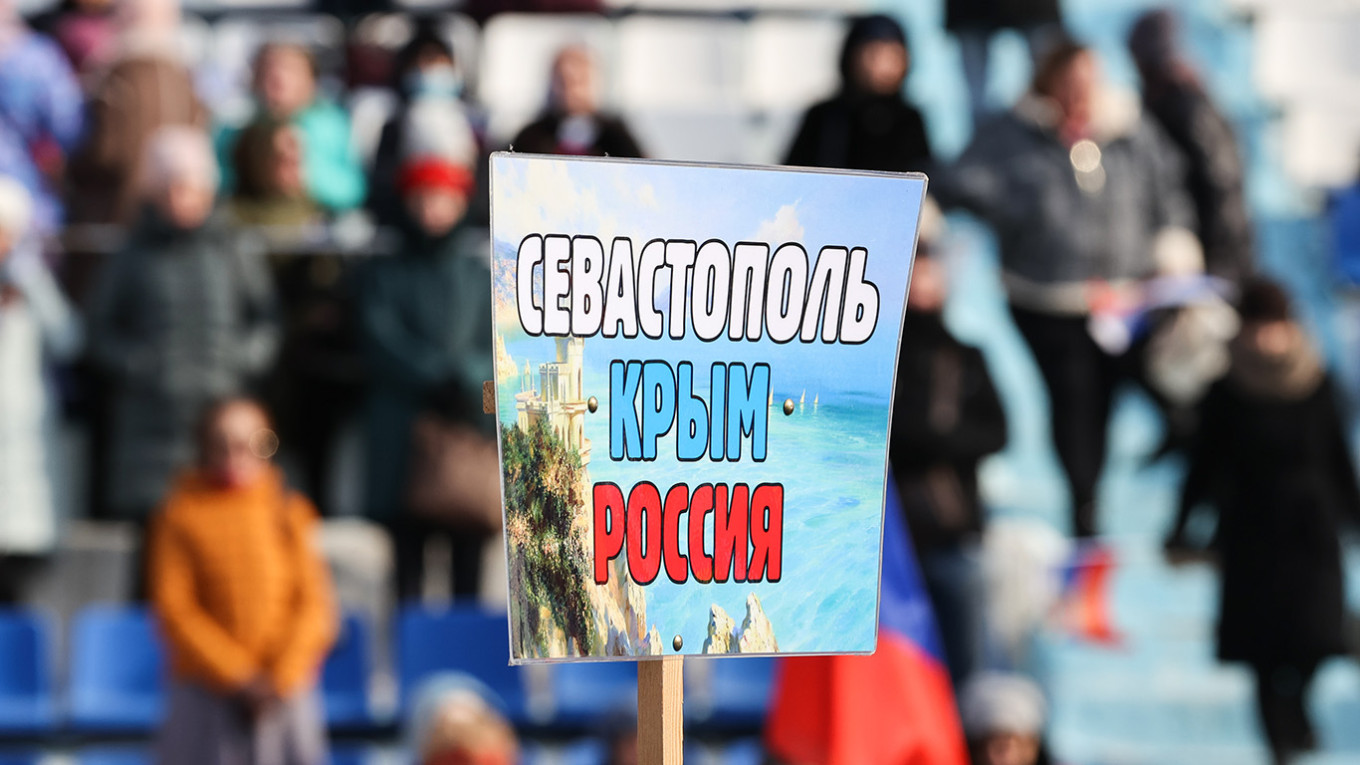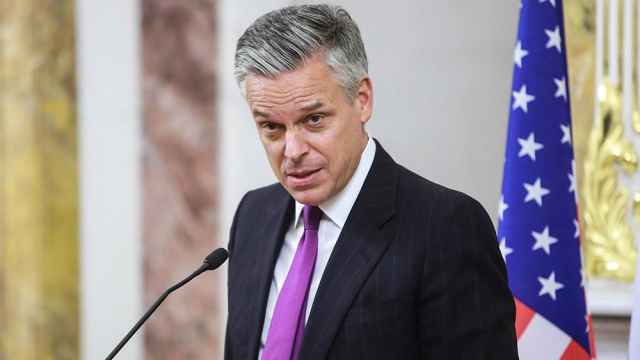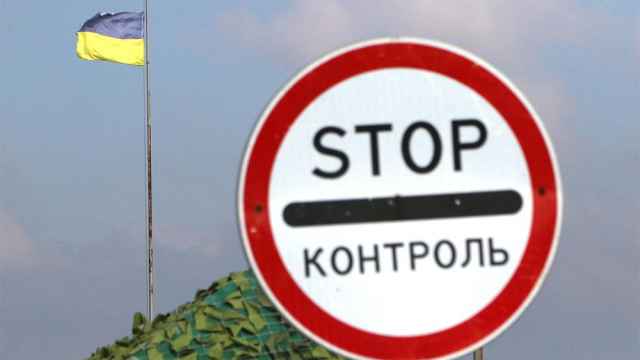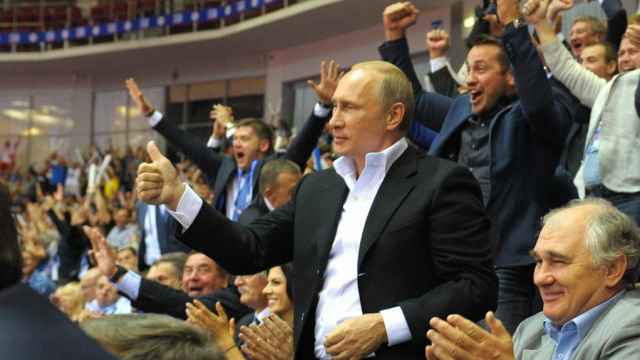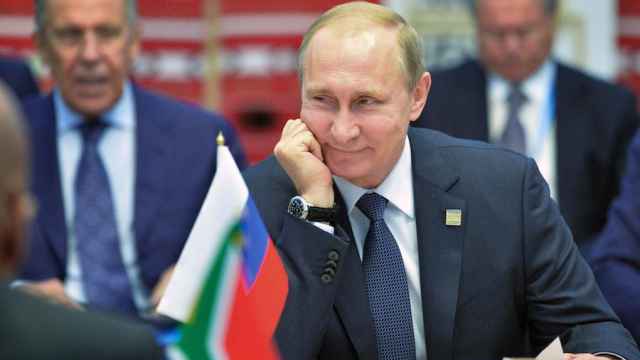Annexed Crimea will “stay with Russia” despite Ukraine’s refusal to recognize the Black Sea peninsula as Russian territory, U.S. President Donald Trump told Time magazine in an interview published Friday.
The status of Crimea has emerged as a key point of tension in U.S.-brokered negotiations to end the war in Ukraine. Earlier this week, Trump lashed out at Ukrainian President Volodymyr Zelensky for “boasting” in the press about his country’s non-recognition of Russia’s annexation.
“Crimea will stay with Russia. And Zelensky understands that, and everybody understands that it’s been with them for a long time,” the U.S. president said in the interview with Time. “It’s been with them long before Trump came along.”
Russian President Vladimir Putin has previously said that Crimea is historically and “forever” part of Russia, a position that few other countries hold.
In his Time interview, Trump appeared to argue that Moscow has a legitimate claim to the Black Sea peninsula because a majority of its population speaks Russian and “they’ve had their submarines there for many years.”
He also sought to distance himself from any responsibility in resolving the territorial dispute, saying Russia annexed Crimea from Ukraine during Barack Obama’s presidency in 2014 and launched the full-scale invasion of Ukraine when Joe Biden was in office.
“Would it have been taken from me like it was taken from Obama? No, it wouldn’t have happened. Crimea, if I were president, it would not have been taken,” he said. “Again, this is Obama’s war. This is a war that should have never happened.”
Trump’s blunt assessment comes as he pushes for a ceasefire agreement between Moscow and Kyiv to end Russia’s three-year war against Ukraine.
On Friday, Reuters reported that Ukrainian and European officials offered counterproposals to the U.S. during recent talks in Paris and London. In addition to control over Crimea, the discussions center on the four Ukrainian regions partially occupied by Russian forces and the future of Ukraine’s military.
The European-Ukrainian proposal defers territorial discussions until after a ceasefire, according to Reuters. The two sides also diverge on sanctions and security terms, with Ukraine seeking stronger guarantees and compensation funded by frozen Russian assets.
Despite the protracted negotiations, Trump said he still expects to reach a deal with both Zelensky and Putin while they are in office.
“I believe I’m the only one that can get this thing negotiated,” he told Time. “If somebody else is president, no chance.”
Trump acknowledged that he understands the Russian leader would “rather go and take the whole thing” through military means, but emphasized his ability to broker peace.
“If I can stop losing 3,000 human beings a week on average, with Russia, Ukraine, it’s only because of me, nobody else could have stopped it,” he said.
Trump also hinted at possible sanctions relief and renewed economic cooperation with Moscow, saying: “If a deal has happened, I can see us doing business with Ukraine and with Russia.”
Meanwhile, Trump appeared to rule out potential NATO membership for Ukraine and claimed that the promise to Kyiv that it could one day join the Western military alliance “caused the war to start.”
Earlier this week, Trump claimed he was “very close” to reaching an agreement with the Kremlin, while accusing Zelensky of being “harder to deal with.”
However, his tone appeared to change somewhat after Russia launched one of its deadliest attacks on Kyiv the following day, prompting him to demand that Putin “get this peace deal DONE.”
Russian Foreign Minister Sergey Lavrov, meanwhile, said that Moscow was ready to make a deal and that remaining differences were being “fine-tuned.”
A Message from The Moscow Times:
Dear readers,
We are facing unprecedented challenges. Russia's Prosecutor General's Office has designated The Moscow Times as an "undesirable" organization, criminalizing our work and putting our staff at risk of prosecution. This follows our earlier unjust labeling as a "foreign agent."
These actions are direct attempts to silence independent journalism in Russia. The authorities claim our work "discredits the decisions of the Russian leadership." We see things differently: we strive to provide accurate, unbiased reporting on Russia.
We, the journalists of The Moscow Times, refuse to be silenced. But to continue our work, we need your help.
Your support, no matter how small, makes a world of difference. If you can, please support us monthly starting from just $2. It's quick to set up, and every contribution makes a significant impact.
By supporting The Moscow Times, you're defending open, independent journalism in the face of repression. Thank you for standing with us.
Remind me later.


